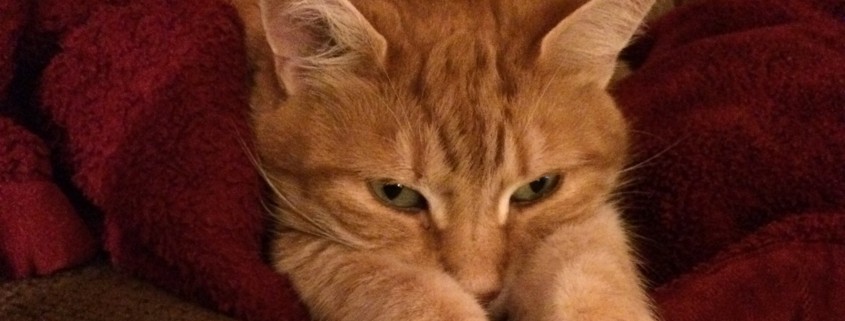Hot Spots in Cats
Patches of inflammation or infections on the skin of cats are often referred to as “Hot Spots”. Hot Spots can be caused by anything from allergies, insect bites or wounds on the skin. Cats’ reaction is to chew or lick these irritated areas, which makes them worse. Bacteria enters the open wound causing it to get infected and then ooze, creating a foul smell. Sometimes hot spots develop if a cat has thick or matted fur that gets wet and stays wet for an extended period of time. Prolonged exposure to damp conditions make the skin ripe of bacterial infection. Rescue cats with large matts of fur usually have hot spots under their matts. Hot Spots are especially common during summer months when cats are spending a lot of time outside in damp or humid weather.
If your cat develops a hot spot, the first thing to do is clean the area. Clip the hair away to help keep the area clean and dry. Medicated ointments can kill the bacteria, but make sure your cat does not continue to lick or chew at the spot. Hot Spots usually clear up when you tend to them, but severe cases or particularly uncomfortable Hot Spots should be seen by a veterinarian in case oral antibiotics or antihistamines are needed.
Studies
Antibiotic sensitivity of bacterial isolates from cases of canine dermatitis.


